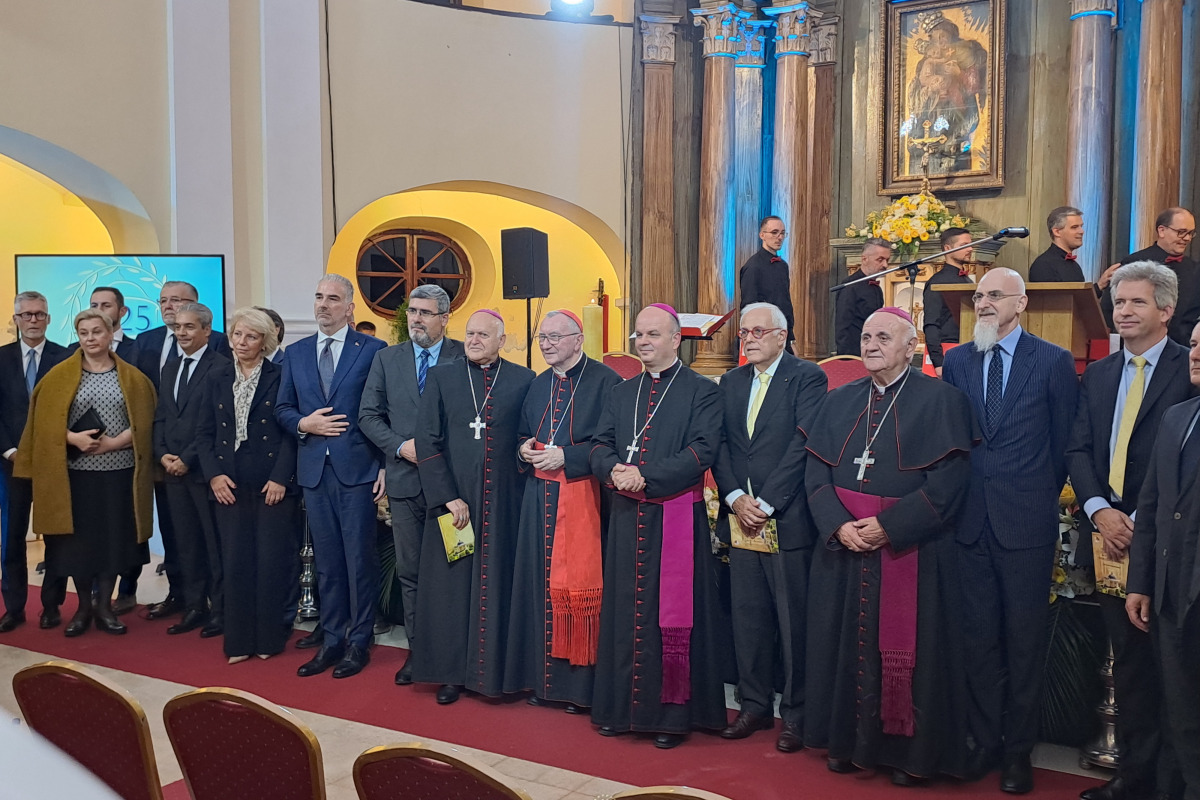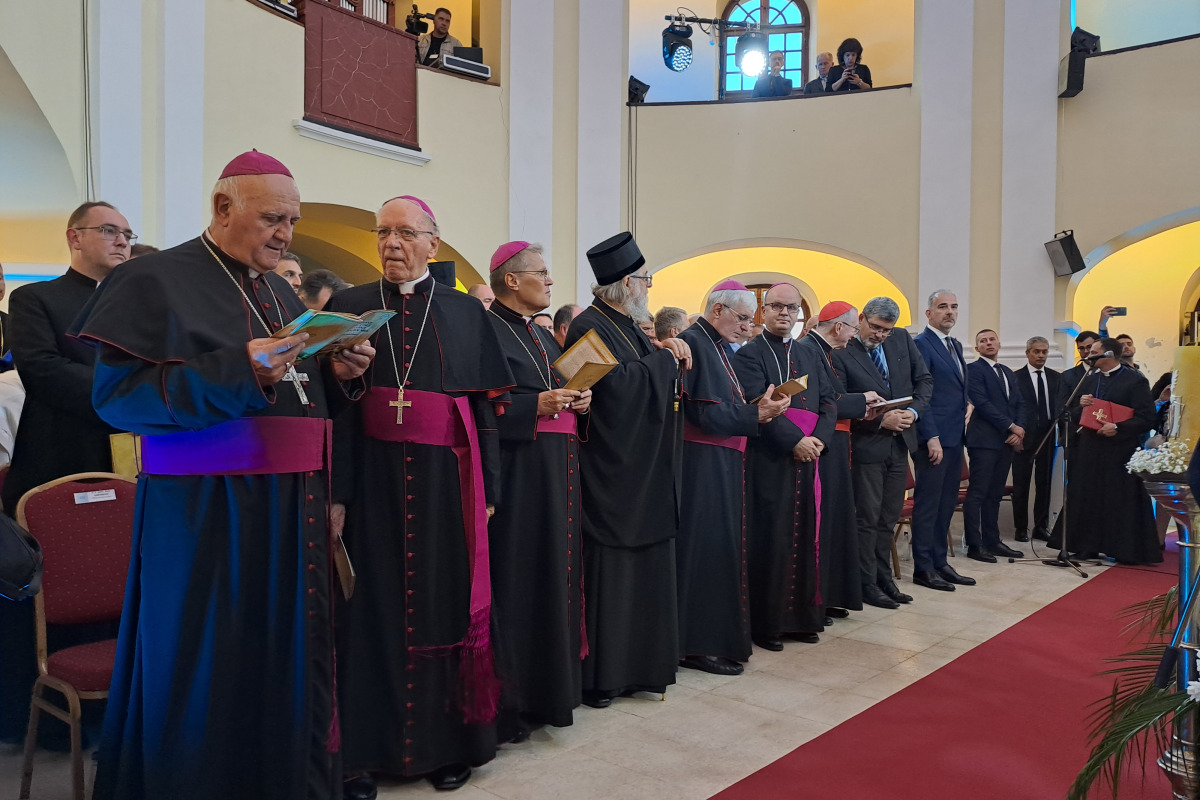Culture is inscribed in our habitus, and it enables us to renew humanity and breathe new life into traditional customs and values, especially in times of crises and transitions, which we still encounter today on a global scale.

The culture of remembrance is one of its special categories, which refers to the interaction of an individual or society with its past and history, and as such, is important in the overall perception of the culture of all nations, which is also recognised in international acts. In the current time of the fourth industrial revolution and digitisation, the world is more than ever faced with false and distorted information about a historical event on the wave of restraining revisionism. To improve the attitude towards accurate details and the conscientious transmission of it to younger generations, the European Union has created a series of documents on cultural policies that talk about the culture of remembrance from various aspects and were adopted to prevent tragic events in the future.
The new Law on Culture of the Republic of Serbia included the remembrance culture. It also had a special place in the exposition of the mandate holder, the current Prime Minister of the Republic of Serbia, Miloš Vučević, who said at the time that “the culture of remembrance is one of those tests that we too often fell as a nation and a state in the past”.
Old events or people are deleted, new ones are added, and existing ones are modified. Whole communities and even nations are said to possess the capacity of collective memory and to be able to remember the events that build their identity, recall them, and transmit them in the form of stories, traditions, or commemorative gatherings. What and how the community remembers becomes part of its culture of remembrance.
Blessed are the peacemakers, for they will be called sons of God (Mt 5:9)
Towards the end of the 17th century, after lengthy negotiations, peace was concluded in Sremski Karlovci, which ended the Great Viennese War, which began with Grand Vizier Kar Mustafa’s battle for Vienna in 1683 and lasted for sixteen long years. Negotiations were conducted between representatives of the Holy League, which consisted of the Habsburg Monarchy, the Republic of Venice, Poland and Russia on the one hand, and representatives of the Ottoman Empire on the other, and representatives of England and the Netherlands participated as mediators. For the first time in the history of world diplomacy, negotiations were conducted at a round table so that each of the parties was treated equally, and this practice later became a norm in diplomacy, emphasising the principle of equality of negotiators.
The negotiations lasted three months, during which the participants met thirty-six times, which speaks in favour of their efforts to reach a consensus and conclude a lasting peace. The negotiations were conducted on “terra nullius” (“no man’s land”) because there was no winner, and the small town of Karlovci was chosen for the negotiations, exactly halfway between the Austrian fortress of Petrovaradin and the Turkish stronghold in the area of Banstol. The final agreement was concluded in 1699. according to the principle “uti possidetis, ita possideatis” (“whatever he owns, let him remain his”). Thus, the Ottoman Empire lost huge expanses, including Hungary and almost all the conquered parts of Croatia. This practically marked the beginning of the end of the Ottoman rule in Europe, which would not be fully completed until the start of the 20th century.
On the occasion of the collective remembrance of this historical event, on September 18 of this year, the Diocese of Srijem organised the ceremony “Commemoration of the 325th anniversary of the signing of the Peace of Karlovci and interreligious prayer for peace” in the Chapel dedicated to Our Lady of Peace, which was built in 1817 in memory of this historical event in Sremski Karlovci.
A distinguished guest from the Vatican attended the ceremony: His Eminence the Exemplary Monsignor Pietro Parolin, Cardinal, Secretary of State of the Holy See; His Excellency Emanuele Gioffre, Ambassador, Head of the Delegation of the European Union; His Excellency Hami Aksoy, Ambassador of the Republic of Turkey to the Republic of Serbia; Nemanja Starović, Minister of Labour, Veterans and Social Affairs on behalf of the Prime Minister of the Republic of Serbia, Miroslav Ilić, Assistant Secretary for Culture, Information and Relations with Religious Communities of the Government of Autonomous Province of Vojvodina, as well as other prominent church dignitaries of the Roman Catholic and Slovak Evangelical churches and the Serbian Orthodox Church, diplomatic representatives, cultural representatives and representatives of the media.
He who has ears to hear, let him hear… (Mt. 13:9)
In his welcoming speech, the Most Exalted Bishop of Srijem, Fabian Svalina, in his capacity as host, greeted the distinguished guests present and the gathered people, pointing out that decision has been made to establish a Center for the Culture of Peace in this place shortly, that will gather people of goodwill and that it will have an educational effect on society, especially on the youth to whom these values should be transmitted, so that this environment remains multicultural and multi-confessional and above all tolerant and that from this place a message of peace can be sent to the whole world in the future.
Exemplary Cardinal Monsignor Parolin thanked Bishop Svalina for organising “this important event”, and in his address to the gathering, he pointed out: “Your presence today as representatives of civil authorities and various religious traditions testifies to the permanent and universal desire for peace that exists in every human heart. I hope that our gathering today will fan that desire into flames and that, guided by our religious convictions, we will learn from past successes to be effective peacemakers today.”
A significant part of the program, especially for those gathered, was a joint prayer with the lighting of appropriate candles, symbolising the light and flame of peace that should burn eternally in the hearts of those who stand for it.
This was followed by the “Joint Appeal for Peace”, which emphasises the determination of those gathered to promote peace as a source of hope and pledge for a better future.
Present representatives of religious communities, civil authorities, diplomats, and people of goodwill gathered on this occasion in the Chapel in Sremski Karlovci, with the quiet and peaceful sounds of the composition “Für Alina” for cello and piano by the Estonian composer Arvo Part, sent a message of their deep and sincere commitment to for peace in Europe and the whole world.
The Chamber Orchestra of the Subotica Philharmonic and the Choir of Albe Vidaković with the soprano Pamela Kiš, under the direction of conductor and artistic director Miroslav Stantić from Subotica, contributed to the festivities of the event in the small, refined acoustic Chapel. The ensembles performed appropriate vocal-instrumental compositions by G. F. Handel, A. Vidaković, G. von Pogatsching and B. Anišić to the satisfaction of those gathered.
After part of the program that was held in the Peace Chapel, and as part of the official program, distinguished guests, representatives of religious communities led by His Eminence Cardinal Monsignor Pietro Parolin, together with representatives of the Government of the Republic of Serbia, ambassadors and other diplomats planted an olive tree sapling in the courtyard in front of the Chapel which is a symbolic tree of peace and a message to future generations for peace in the world, to commemorate this day and celebrate the anniversary.
This gathering sent an important message about Pope Francis I’s commitment to peace through Cardinal Parolin’s words: “Never again war! Never more war in this country or the world!”
Text and photo: by Adrian Kranjčević
MA musicologist, music critic of the Journal of Contemporary Culture of Vojvodina “Nova Misao”
